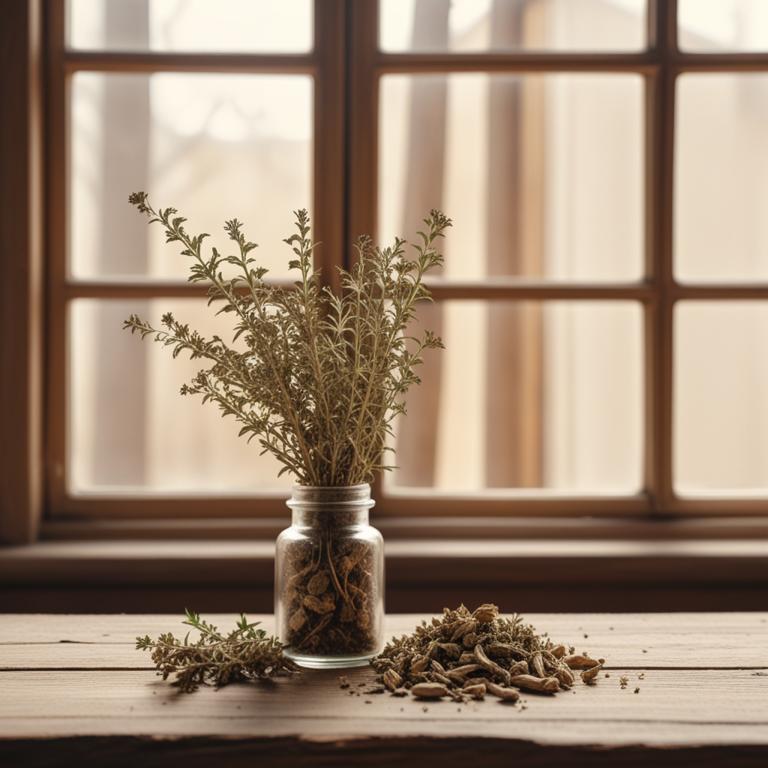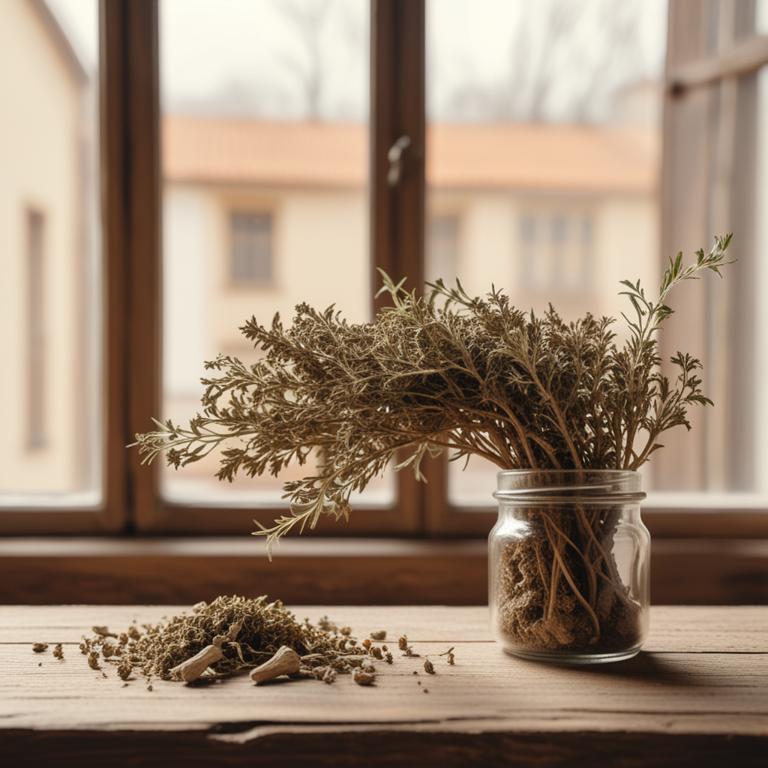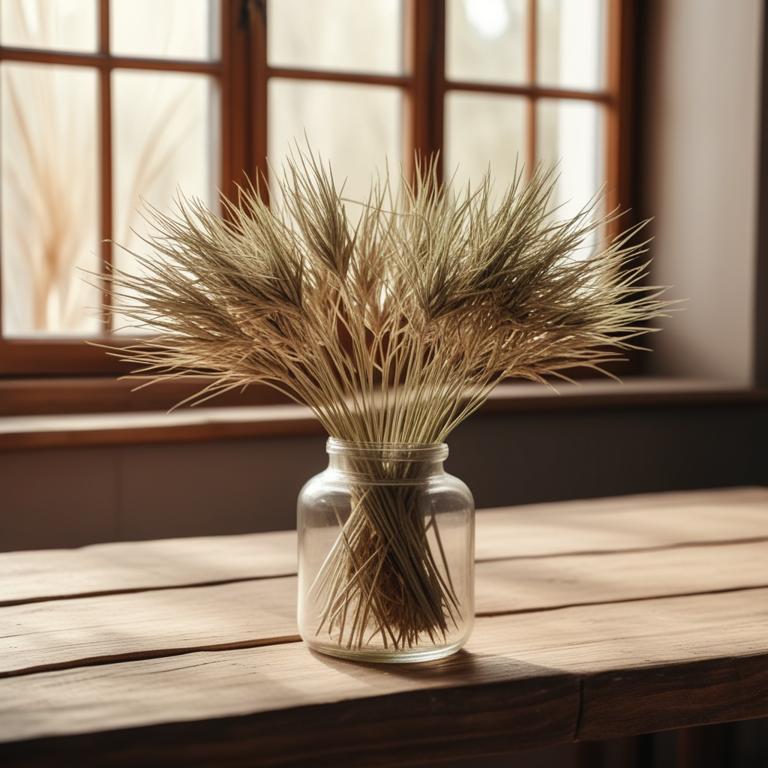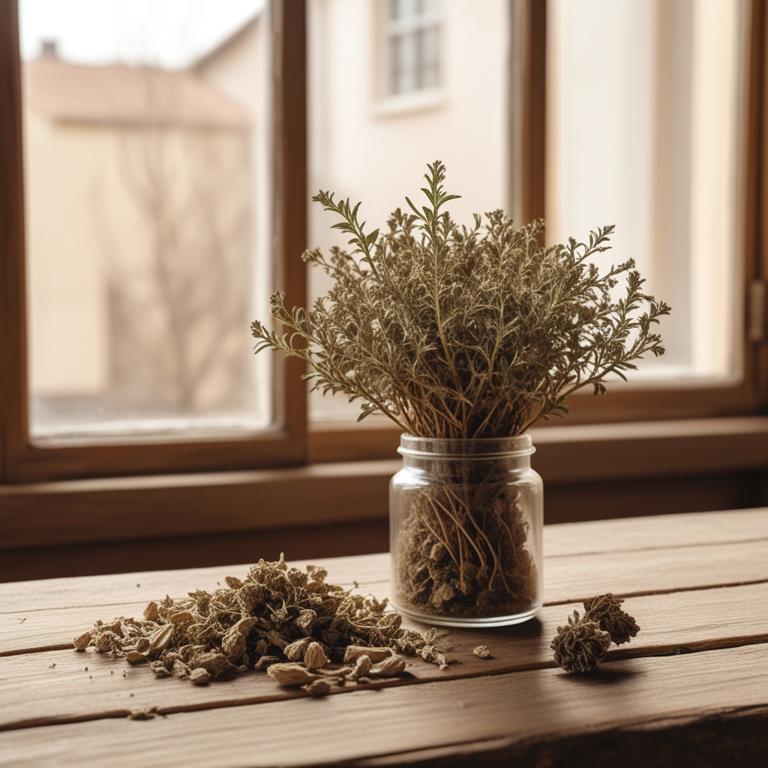Updated: Nov 30, 2024
7 Herbal Teas For Jaw Pain
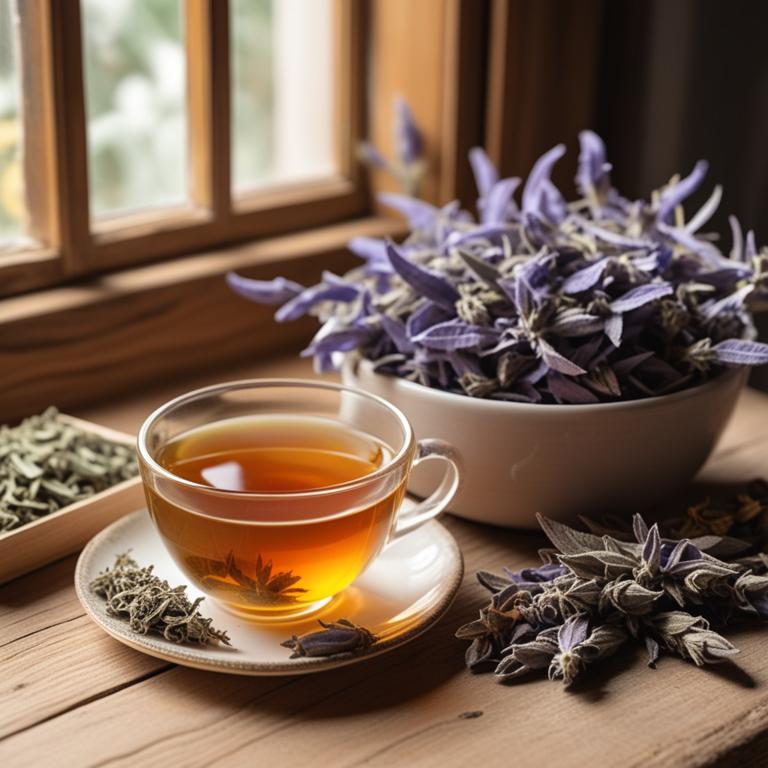
Herbal teas can be a great way to alleviate jaw pain, especially when it's caused by tension, inflammation, or sinus issues.
These teas work by targeting the root cause of the pain, whether it's relaxation, reduction of swelling, or clearing of sinuses. One example is ginger (Zingiber officinale), which has anti-inflammatory properties that can help reduce swelling and ease pain. It also has a natural warming effect that can help relax tense muscles.
Another example is echinacea (Echinacea purpurea), which has anti-inflammatory properties and can help boost the immune system, reducing the risk of infection that can cause jaw pain. Lemon balm (Melissa officinalis) is also a good example, as it has a calming effect that can help relax the mind and body, reducing stress and tension that can lead to jaw pain. Drinking herbal teas like these can bring many benefits to your life, such as improved mood, reduced stress, and better sleep quality.
By incorporating these teas into your daily routine, you can experience relief from jaw pain and enjoy a more comfortable and relaxed life.
This article explains in detail what are the best herbal teas for jaw pain and wh.
Also, you may be interested in...
Today Free Bonus!
The Ultimate Herb Drying Checklist
(For Long-Lasting Powerful Medicinal Effect)
How to easily dry herbs that don't mold and that keep their strong medicinal power for more than 1 year.
Table of Contents
1. Zingiber officinale

Zingiber officinale teas contains compounds like gingerol and shogaol, which are responsible for its anti-inflammatory properties.
These compounds work by inhibiting the production of prostaglandins, hormone-like substances that cause pain and inflammation in the body. By reducing the levels of these prostaglandins, ginger helps to alleviate pain and discomfort in the jaw, often associated with conditions like temporomandibular joint (TMJ) disorder. Ginger's anti-inflammatory properties also help to reduce swelling and ease muscle tension in the jaw, further contributing to its pain-relieving effects.
Regular consumption of Zingiber officinale teas may help to reduce the frequency and severity of jaw pain episodes.
- Gather ingredients: 1 tablespoon of dried Zingiber officinale root, 1 cup of boiling water, and a tea infuser or strainer.
- Measure 1 tablespoon of dried Zingiber officinale root and place it in the tea infuser or strainer.
- Pour 1 cup of boiling water over the Zingiber officinale root in the tea infuser or strainer.
- Let the mixture steep for 5-7 minutes, then carefully remove the tea infuser or strainer.
- Strain the tea into a cup and drink while warm to help with jaw pain relief.
Ginger Tea on Amazon
FGO Organic Ginger Tea, Eco-Conscious Tea Bags, 100 Count, Packaging May Vary (Pack of 1)
Disclaimer: We earn a commission if you click this link and make a purchase at no additional cost to you.
2. Echinacea purpurea

Echinacea purpurea teas contains a number of bioactive constituents that can help alleviate jaw pain.
These constituents, including alkylamides, glycosides, and phenolic acids, have anti-inflammatory and antioxidant properties. Alkylamides, in particular, have been shown to reduce inflammation and pain by inhibiting the production of pro-inflammatory chemicals. Glycosides, such as echinacin, also have analgesic and anti-inflammatory effects, which can help to reduce pain and swelling in the jaw.
By reducing inflammation and promoting healing, the bioactive constituents in Echinacea purpurea teas may help to alleviate jaw pain and promote overall oral health.
- Gather 2 teaspoons of dried Echinacea purpurea root and 1 teaspoon of dried Echinacea purpurea flowers.
- Boil 1 cup of water in a pot.
- Add the dried Echinacea root and flowers to the boiling water.
- Reduce heat and let it simmer for 5-7 minutes.
- Strain the tea and drink 1-2 cups throughout the day to help with jaw pain.
Purple Coneflower Tea on Amazon
Purple Coneflower Herb Echenecia Tea - Immunity Support Tea - Echinacea Tea Coneflower Tea Echinacea Herb Purple Tea Echinacea Herb Dry Echinacea Dried Herb Echinacea Leaves Purple Echinacea Tea
Disclaimer: We earn a commission if you click this link and make a purchase at no additional cost to you.
3. Melissa officinalis

Melissa officinalis teas contains rosmarinic acid, borneol, and linalool, which are bioactive compounds that contribute to its analgesic and anti-inflammatory properties.
These compounds help reduce pain and inflammation in the jaw, which is often a result of tension or stress. Rosmarinic acid, in particular, has been shown to inhibit the production of prostaglandins, which are hormone-like substances that trigger pain. Linalool, on the other hand, has a sedative effect, which can help relax the jaw muscles and reduce tension.
By consuming Melissa officinalis teas, individuals may experience relief from jaw pain due to its ability to reduce inflammation and relax the jaw muscles.
- Get 1 cup of boiling water.
- Add 2 tablespoons of dried Melissa officinalis leaves to a tea infuser.
- Place the tea infuser in the boiling water and let it steep for 5-7 minutes.
- Strain the tea into a cup and discard the leaves.
- Drink the tea 2-3 times a day for jaw pain relief.
4. Achillea millefolium

Achillea millefolium teas contains bioactive constituents like sesquiterpene lactones, flavonoids, and volatile oils.
These compounds have anti-inflammatory and antispasmodic properties that help relax tense muscles in the jaw. The sesquiterpene lactones, particularly chlorogenic acid, have a natural pain-relieving effect, while the flavonoids help reduce inflammation in the jaw joint. The antispasmodic properties of the tea also help ease jaw tension and spasms, which can contribute to pain.
By reducing inflammation and relaxing the muscles, Achillea millefolium tea may help alleviate jaw pain caused by conditions like temporomandibular joint disorder.
- Gather 1 tablespoon of dried Achillea millefolium flowers and 1 cup of boiling water.
- Measure 1 tablespoon of dried flowers and place them in a cup.
- Pour 1 cup of boiling water over the dried flowers in the cup.
- Let the mixture steep for 5-7 minutes, then strain it into another cup.
- Drink the tea 2-3 times a day to help relieve jaw pain.
Yarrow Tea on Amazon
Wild Bliss Organic Yarrow Tea - Caffeine Free Herbal Tisane - Pharmacopoeia Potency - 20 Plant Based Tea Bags
Disclaimer: We earn a commission if you click this link and make a purchase at no additional cost to you.
5. Glycyrrhiza glabra

Glycyrrhiza glabra teas contains glycyrrhizin, a potent bioactive constituent that helps to reduce inflammation and swelling in the jaw area.
The anti-inflammatory properties of glycyrrhizin make it effective in alleviating jaw pain caused by conditions such as temporomandibular joint (TMJ) disorders. Glycyrrhizin also has a soothing effect on the muscles, reducing tension and spasms in the jaw. Additionally, Glycyrrhiza glabra teas contains flavonoids, which have antioxidant properties that help to protect the jaw tissues from damage caused by free radicals.
By reducing inflammation and promoting relaxation, Glycyrrhiza glabra teas can provide relief from jaw pain and discomfort.
- Gather ingredients: 2 teaspoons of dried Glycyrrhiza glabra root, 1 cup of boiling water, honey or sugar (optional)
- Measure 2 teaspoons of dried Glycyrrhiza glabra root into a tea infuser or a heat-resistant cup
- Pour 1 cup of boiling water over the dried root, and let it steep for 5-7 minutes
- Strain the tea into a cup, and discard the root. Add honey or sugar to taste, if desired
- Drink the tea 2-3 times a day for jaw pain relief, as needed
Licorice Tea on Amazon
FullChea - Licorice Root Tea Bag, 40 Teabags, 2g/bag - Premium Licorice Root - Non-GMO - Naturally Caffeine-free Herbal Tea - Aid in Digestion & Promote Respiratory Health
Disclaimer: We earn a commission if you click this link and make a purchase at no additional cost to you.
6. Cinchona officinalis

Cinchona officinalis teas contains a compound called quinine, which is known for its anti-inflammatory properties.
Quinine works by reducing swelling and pain in the jaw, making it easier to manage conditions like temporomandibular joint (TMJ) disorder. The tea also contains other bioactive constituents, such as alkaloids and flavonoids, which have been shown to have analgesic and anti-inflammatory effects. These properties help to reduce pain and discomfort in the jaw, making it a popular remedy for people suffering from TMJ pain.
The anti-inflammatory and analgesic effects of Cinchona officinalis teas make it a potential natural solution for managing jaw pain.
- Gather 1 teaspoon of dried Cinchona officinalis bark and 1 cup of boiling water.
- Put the dried bark into a tea infuser or a heat-resistant cup.
- Pour the boiling water over the bark and let it steep for 5-7 minutes.
- Strain the tea into another cup and discard the bark.
- Drink 1/2 cup of the tea, 2-3 times a day, to help manage jaw pain.
7. Salvia officinalis

Salvia officinalis teas contains rosmarinic acid, a powerful antioxidant that helps reduce inflammation, a common cause of jaw pain.
It also has thymol, a compound that has antimicrobial properties, which can help fight off infections that may be contributing to jaw discomfort. The tea's anti-inflammatory properties are also due to its content of caffeic acid and luteolin, which work together to reduce swelling and pain in the jaw. Additionally, Salvia officinalis has a soothing effect on the nervous system, which can help calm tension and ease pain in the jaw and face.
The combination of these compounds makes Salvia officinalis tea a potential natural remedy for jaw pain.
- Gather 1 cup of fresh or dried Salvia officinalis leaves.
- Heat 1 cup of water in a pot until it boils.
- Add 1 tablespoon of the Salvia officinalis leaves to the boiling water.
- Reduce heat and let it simmer for 5-7 minutes.
- Strain the tea and let it cool before drinking 1/2 cup to help relieve jaw pain.
FAQ
Can drinking herbal tea prevent jaw pain from forming?
Drinking herbal tea may help reduce jaw pain.
Some herbal teas, like peppermint and chamomile, have anti-inflammatory properties that can soothe sore muscles and joints. Ginger tea is also known to ease pain and relax the jaw.
Regularly drinking these teas might help prevent jaw pain from forming.
Is it safe to consume herbal teas for jaw pain every day?
Herbal teas can be a good option for jaw pain relief, but it's best to use them in moderation.
Drinking them daily may cause interactions with other medications or worsen certain conditions.
Some teas, like chamomile, can be safe to consume regularly, but it's essential to research the specific herbs and their potential effects on your body.
How long does it take for herbal teas to show results in jaw pain?
Herbal teas for jaw pain can start to help within a few days to a week.
Some people notice relief from inflammation and tension in their jaw and face. As the body absorbs the active ingredients, the pain may start to fade.
Regular consumption may lead to ongoing relief, but results can vary from person to person.
What time of day is best to drink herbal tea for jaw pain?
For jaw pain, it's often best to drink herbal tea in the morning or early afternoon.
This allows the soothing effects to last throughout the day.
Some herbal teas, like peppermint and chamomile, can help relax tense muscles and reduce pain, giving you relief when you need it most.
Related Articles

Understanding Arthritis: Causes, Medicinal Herbs, and Herbal Preparations

Understanding Bunion Causes and Using Medicinal Herbs for Relief
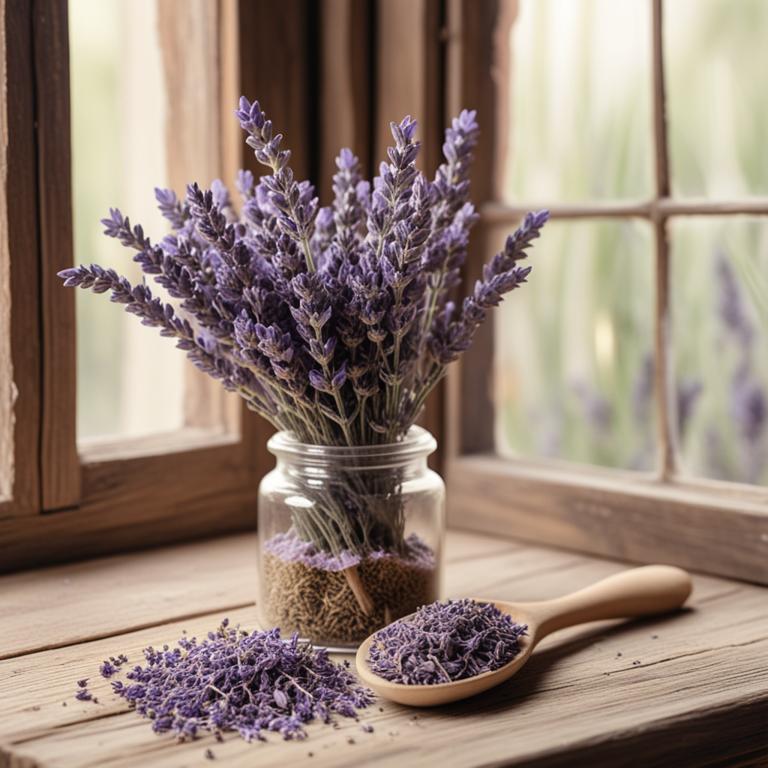
Jaw Clenching and Bruxism: Causes, Medicinal Herbs, and Herbal Preparations
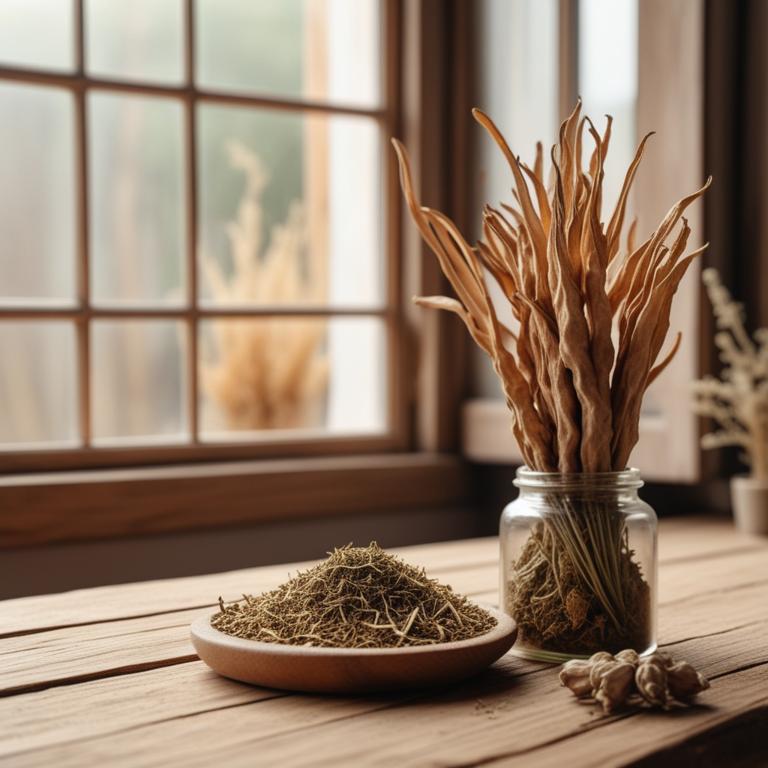
Osteoporosis: Exploring Causes, Medicinal Herbs, and Herbal Preparations
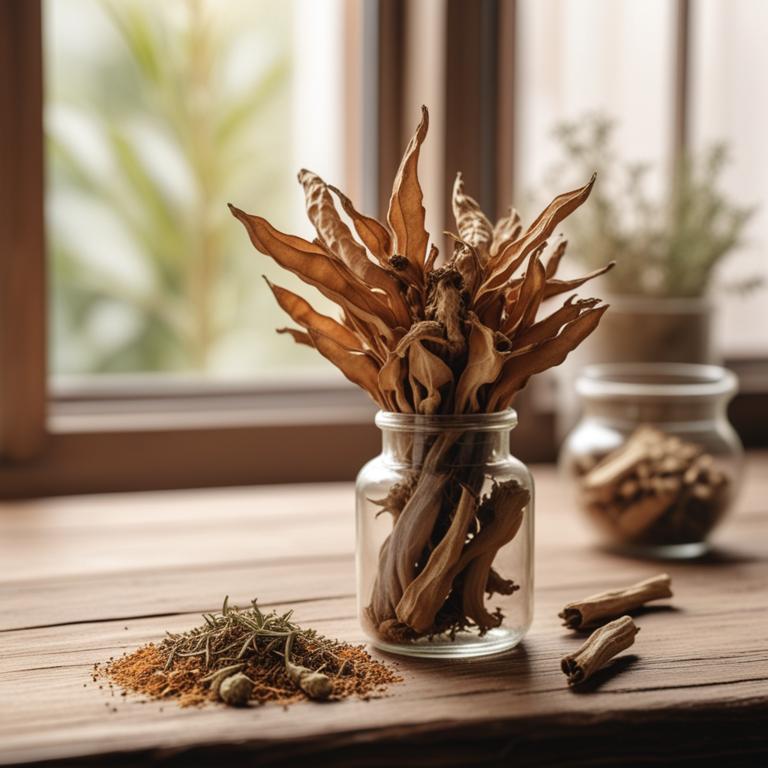
Understanding Lower Back Pain: Causes, Medicinal Herbs, and Herbal Preparations
